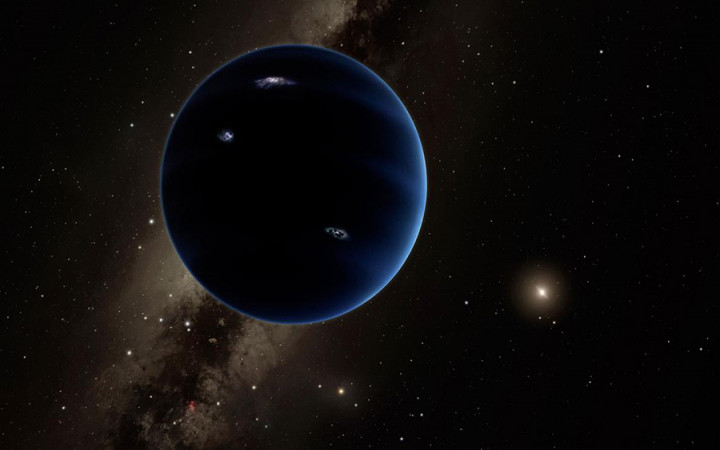Today’s Wonder of the Day was inspired by Bryce . Bryce Wonders, “How many planets exist?” Thanks for WONDERing with us, Bryce !
Do your teachers ever encourage you to think "outside the box"? It's good advice, if you can do it. Some of the best scientific breakthroughs and inventions have come along when someone was brave enough to think about things in a new and creative way.
Today, we're going to ask you to think outside the sphere. Specifically, think outside the planet we call home. Think about the wider neighborhood we live in, otherwise known as our solar system.
If you're already familiar with our solar system, you know it all revolves around the giant burning ball of gas we call the Sun. That's where the "solar" in solar system comes from. All those other solar systems out in the Milky Way galaxy and all the other galaxies throughout the universe have their own stars.
Moving outward from the Sun, you begin to encounter the planets that call our solar system home. First, you find Mercury. Next is Venus and after that is our home sweet home, Earth. Moving farther out from Earth, you come across Mars, Jupiter, Saturn, Uranus, and finally Neptune.
That's it, right? We have eight planets in our solar system. Well, there used to be nine. Remember Pluto? Ever since Pluto was demoted, though, we've had just eight planets.
Scientists who have been studying the farthest reaches of our solar system, however, believe there might be yet another planet lurking out there…WAY out there. They call this mysterious, unconfirmed object Planet Nine.
If they haven't yet seen Planet Nine, why do they believe it exists? The answer to that question lies in the weird orbits of extreme Kuiper Belt Objects.
These icy bodies that exist way out beyond Pluto move around the Sun in some unexpected ways. Scientists who have traced their movements believe their strange orbits could be explained by the gravity of an as-yet-undiscovered ninth planet.
What would Planet Nine be like? Scientists believe it could be about three times larger and ten times more massive than Earth. Instead of a rocky planet, however, they think it would be more like a gaseous, miniature version of Neptune.
If Planet Nine is out there, why hasn't it been found yet? Scientists are still searching for it because it's so faint and so far away. Scientists estimate that, at its closest, Planet Nine would be 200-300 times farther out than Earth and, at its farthest, it would be 600-1,200 times farther than Earth.
Based upon those distances, experts believe it could take Planet Nine as long as 20,000 years to make one trip around the Sun. Experts also think Planet Nine could be as much as 10,000 times dimmer than Pluto.
With so much space to search for such a dim object, astronomers will have to use incredibly powerful telescopes and have a good idea of where to look. Scientists are now using data from the extreme Kuiper Belt Objects' strange orbits to predict where Planet Nine might be on its orbital path around the Sun.
The task is a bit like looking for a needle in a haystack. Will Planet Nine ever be discovered? Some experts believe there's a 70-80% chance it really exists. Others are not so sure. The existence of a ninth planet has been suggested many times in the past, but to date it has never been found.




